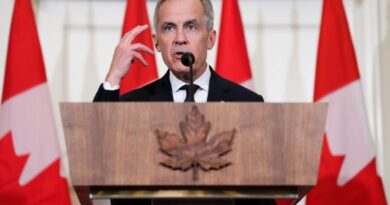Physician Associates Review Role Launch
The government has initiated an investigation in response to safety concerns raised by the BMA, royal colleges, and patient groups.
The government has launched a review of the roles of physician associates (PAs) and those working in anaesthesia due to concerns raised by various groups regarding patient safety.
Professor Gillian Leng, president of the Royal Society of Medicine, will lead the investigation into how these roles impact patients and support broader healthcare teams, including GPs.
Recommendations on how these new roles should function in the future are expected to be released by spring.
The Academy of Medical Royal Colleges wrote to Health Secretary Wes Streeting in September, urging a review of associate roles amid growing worries among doctors.
The academy called on the government and NHS England to assess whether associates are negatively impacting patient safety, effectively freeing up doctors’ time, and enhancing overall patient care quality.
Plan to Triple Number of PAs
The current plan, supported by both the previous Conservative government and Labour in its election manifesto, aims to nearly triple the number of PAs in England from 3,500 to 10,000 by 2036-37, and to recruit 2,000 more anaesthesia associates (AAs).
The Royal College of GPs has issued guidance stating that PAs should only see patients who have been triaged by a GP and should only perform tasks delegated and approved by their GP supervisor.
PAs are graduates with two years of postgraduate training but without a medical degree.
In recent years, they have garnered attention due to incidents where patients were treated by associates without their knowledge, leading to errors and unfortunate outcomes.
For instance, Emily Chesterton, 30, passed away in 2022 from a pulmonary embolism after being misdiagnosed by a PA during visits to her GP surgery in north London.
Although she believed she was seeing a GP, the PA failed to identify her leg pain and breathlessness as signs of a blood clot, which eventually proved fatal when it traveled to her lungs.
A coroner later determined that she should have been urgently referred to a hospital emergency unit for potential treatment of a pulmonary embolism, which might have saved her life.
PAs work under doctors’ supervision and can diagnose patients, obtain medical histories, conduct physical examinations, manage patients with chronic conditions, interpret test results, and formulate treatment plans.
‘Legitimate Concerns’
Streeting stated, “Many physician associates provide excellent care and allow doctors to focus on tasks only they can perform.
“However, concerns about transparency, scope of practice, and doctor substitution are valid.
“These concerns have been neglected for too long, leading to a contentious debate where physicians feel sidelined and PAs feel disheartened.”
He added that the review aims to clarify the situation, address the issue calmly, and ensure appropriate allocation of responsibilities.
Amanda Pritchard, CEO of NHS England, emphasized that while PAs and AAs are valuable members of NHS staff, they are not meant to replace doctors.
Dr. Jeanette Dickson, chair of the Academy of Medical Royal Colleges, believes the review offers an opportunity to ensure these roles support safe patient care and enable training for resident doctors, as intended.
Dr. Mumtaz Patel, acting president of the Royal College of Physicians, welcomed the review and stressed the importance of patient safety and adequate deployment of PAs.
British Medical Council chairman, Professor Phil Banfield, criticized the NHS for failing to ensure the safe employment of associates, leading to uncertainties about their capabilities and creating a variation in patient care standards.
He called for a clear, nationally agreed-upon scope of practice for PAs to address these issues.
PA Media contributed to this report.





